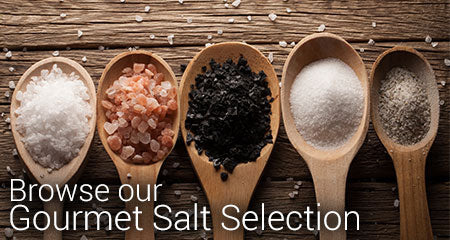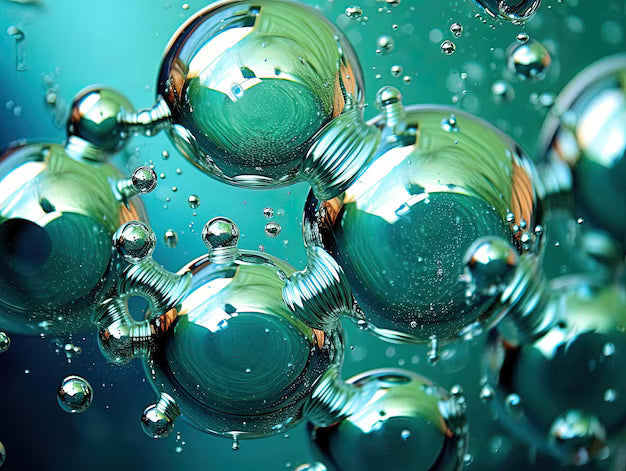Depression & Anxiety - Blog # 45

Hi Everyone! Welcome back to another Friday blog. Today I wanted to talk about depression. Depression is the leading cause of disability world-wide and affects more than 300 million people (WHO) of all ages. WOW! Just think about this for a minute… Here are some stats taken from Mental Health America:
- The number of people looking for help with anxiety and depression has skyrocketed. From January to September 2020, 315,220 people took the anxiety screen, a 93 percent increase over the 2019 total number of anxiety screens. 534,784 people took the depression screen, a 62 percent increase over the 2019 total number of depression screens.
- Youth mental health is worsening. 9.7% of youth in the U.S. have severe major depression, compared to 9.2% in last year’s dataset. This rate was highest among youth who identify as more than one race, at 12.4%.
- Even before COVID-19, the prevalence of mental illness among adults was increasing. In 2017-2018, 19% of adults experienced a mental illness, an increase of 1.5 million people over last year’s dataset.
- Suicidal ideation among adults is increasing. The percentage of adults in the U.S. who are experiencing serious thoughts of suicide increased 0.15% from 2016-2017 to 2017-2018 – an additional 460,000 people from last year’s dataset.
- There is still unmet need for mental health treatment among youth and adults. 60% of youth with major depression did not receive any mental health treatment in 2017-2018. Even in states with the greatest access, over 38% are not receiving the mental health services they need. Among youth with severe depression, only 27.3% received consistent treatment. 23.6% of adults with a mental illness reported an unmet need for treatment in 2017-2018. This number has not declined since 2011.
- The percentage of adults with a mental illness who are uninsured increased for the first time since the passage of the Affordable Care Act (ACA). Nationally, 10.8% are uninsured, totaling 5.1 million adults. This figure differs dramatically across states – in New Jersey (ranked #1) 2.5% of adults with AMI are uninsured, compared to 23% in Wyoming (ranked #51).
*** If you suffer from depression, seek medical help***
As we can see, this situation has worsened during the pandemic. In fact, compared to 2019, “U.S. adults in April and May 2020 were more than three times as likely to screen positive for depressive disorders, anxiety disorders, or one or both.” Let’s take a look at the latest research.
A study in Turkey looked at the depression levels of individuals following the onset of the Covid-19 pandemic. “The pandemic caused anxiety disorders such as somatization, post-traumatic stress disorder, and panic disorder and depression in individuals.” They noted the highest depression occurred in young, single, college females ages 18-29. They state “a series of undesirable emotional and behavioral problems developed in individuals during this period: an increase in negative emotions such as despair, anxiety, guilt, stigma, insomnia, anger, fear of being infected, an increase in alcohol consumption and smoking, and social isolation.”
Studies demonstrate that anxiety increases inflammation through several pathways, increasing the stress hormone cortisol, the pro-inflammatory cytokine interleukin-6 (IL-6), and the systemic inflammatory marker C-reactive protein (CRP). These markers increase the risk of a host of inflammatory diseases, including cancer, cardiovascular disease, diabetes, digestive disorders and many others.
“Inflammation is a key mechanism in the pathophysiology of mood disorders, including major depression, post-partum depression and bipolar disorder.” There’s that word again. Inflammation and oxidative stress. It is at the root of all disease processes. So, what can we do about depression?
Get Professional Help - See a psychiatrist. Don’t try to manage on your own, particularly if you find you are having suicidal thoughts. You may need an anti-depressant.
Eat Organic - many chemicals can cause or contribute to depression and anxiety. Omitting pesticides can help.
Omega 3s - Our brain is 60% fat! Low-fat diets are NOT GOOD for our brain health - or health in general. Eat fatty fish such as salmon, trout or sardines to get your Omega 3’s! They are crucial in formation of the myelin sheath surrounding nerves and in nerve conduction. A 2012 study published in the Journal of Neuroscience, revealed supplementation with Omega 3 fatty acids (ALA, DHA, EPA) help heal damaged peripheral nerves. DHA is the most abundant fatty acid in the brain and nerve cell structure and function. “Omega 3s can also help reduce the development and symptoms of anxiety. Studies even show that adequate levels of EPA are associated with protection against post-traumatic stress disorder (PTSD).”
Studies have highlighted the link between mood disorders and blood and cellular membrane PUFAs (polyunsaturated fatty acid) content. “Subjects diagnosed for anxiety and depressive disorders show lower ω3 PUFAs and higher ratio of ω6 to ω3 PUFAs in their blood and brains compared to healthy subjects matching for age and sex.” The western diet is very high in omega 6 FAs. Having the right ratio of PUFAs appears to be key. It has been well-documented that Omega 3s, particularly DHA, lowers perceived stress by enhancing adrenal function.
Researchers looked at fish consumption relative to major depressive disorder in several countries including Northern Ireland, Norway, Finland, France and New Zealand. “Subjects having low fish consumption (lower than once per week, including seafood) present high scores of depression.” A transnational study including 170,000 people showed individuals from Asian countries with the highest fish consumption had very little depression, whereas Western countries experience a much higher rate of depression.
EVOO - Full of powerful anti-inflammatory and antioxidant compounds and has neuroprotective properties. EVOO also induces autophagy, very important in maintaining brain health. High polyphenol EVOO improves memory, increases serotonin (neurotransmitter), increases dopamine and has an anxiolytic (anti-anxiety) effect in animals. “Repeated administration of extra-virgin olive oil produce significant antidepressant effects… This indicates that olive oil has great potential to reduce depression.”
We already know about the healing effect of EVOO on endothelial tissue! It helps heal brain tissue and even the BBB (blood brain barrier). The BBB is a cell membrane, and we know that Oleic Acid (OA) is actively involved in repair and protection of cell membranes. Your body’s ability to synthesize lipids requires the right dietary raw materials that are critical for the formation of membrane bilayers in multiple organ systems. “The incorporation of oleic acid into the phospholipids of the cell membrane can regulate the membrane structure and, in turn, alter the biophysical properties of the membrane.” Here is an illustration of a membrane bilayer taken from Membrane Composition and Dynamics.

Vitamin B1 - Thiamine - Super important for the brain as it is a cofactor for multiple enzymes involved with energy metabolism, biosynthesis of nucleic acids as well as production of antioxidants. “The brain is highly vulnerable to thiamine deficiency due to its heavy reliance on mitochondrial ATP production. Thiamine deficiency contributes to a number of conditions spanning from mild neurological and psychiatric symptoms (confusion, reduced memory, and sleep disturbances) to severe encephalopathy, ataxia, congestive heart failure, muscle atrophy, and even death.” Several studies show an inverse relationship to thiamine levels and depression. Foods high in thiamin include pork, fish, seeds, nuts, beans, green peas, tofu, brown rice, squash, asparagus, and seafood. The current daily value (DV) for vitamin B1 is 1.2mg.
Other B vitamins are important co-factors as well, responsible for DNA methylation and clearance of homocysteine. Deficiency in any one of these can result in a build up of homocysteine, which is linked to anxiety and depression. A study reported up to 30% of depressed patients have elevated homocysteine levels. “All the B vitamins are known to play crucial roles in our health, but vitamin B12 and folate in particular appear to be related in some way to the presence of depressive symptoms. Studies overall show supplementation improves mood in both healthy and at-risk individuals.”
Vitamin D - most people in the U.S. are deficient in vitamin D. This is the “sunshine” vitamin that enhances mood. There are multiple receptors for vit D in the brain, particularly the hippocampus. It is involved in multiple brain processes with lower levels associated with cognitive impairment. However, studies show supplementation with vit D had no statistical effect on depression. Studies are revealing the significance of vit D3 with enhancing immune function.
Pre/Probiotic - Healthy gut function has been linked to normal CNS function. “When the human microbiome is challenged with changes in diet, stress, or antibiotics, the physiology of the normal microbiome undergoes change. A dysbiotic state leads to increased intestinal permeability and allows contents such as bacterial metabolites and molecules as well as bacteria themselves to leak through the submucosa and into the systemic circulation, a phenomenon aptly named leaky gut syndrome.” Changes in the microbiome and inflammation of the gut have been linked to causing several mental illnesses, including anxiety and depression.
Vitamin C - vitamin C deficiency may be more common than we know. Insufficient levels are linked to depression and cognitive impairment.
Vitamin K2 - Improves anxiety and depression
Protein - The amino acid L-Tryptophan is a precursor to serotonin. It is found in poultry, fish, dairy and nuts.
Exercise - Has been shown to be effective as both mono therapy and adjunct therapy. Increases blood flow to the brain and protects brain volume.
Sleep - Sleep disorders are so closely linked to depression that diagnoses of depression without a sleep disorder should be looked at very closely. “About three quarters of depressed patients have insomnia symptoms, and hypersomnia is present in about 40% of young depressed adults and 10% of older patients, with a preponderance in females. The symptoms cause huge distress, have a major impact on quality of life, and are a strong risk factor for suicide.” Our brain’s cleaning system is activated during sleep,
Meditation - People who suffer from depression can have a lot of dark thoughts. Training yourself to mindfully meditate and redirect those thoughts can be helpful.
“Nutrition can play an important role in achieving better mental health; a recent study showed that in a group of adults with depression, ⅓ of participants who ate a diet rich in produce, fish and legumes experienced a remission of symptoms.”
Okay, so some things to AVOID:
Sugars - Studies show an adverse effect on long-term neuropsychiatric health. There are around 200 names for sugar used in food products! Foods that cause an insulin spike are highly linked to depression and anxiety. Sugars and simple carbohydrates increase inflammation and all-cause mortality, decrease neurotransmitter activity and increase depression. If you are diabetic and require insulin, your risk of depression goes up significantly.
Processed foods - contain chemicals (pesticides and preservatives) and devoid of many nutrients. Contributes to inflammation and all-cause mortality
Fried Foods - Typically fried in vegetable oils that are heated repeatedly. You get trans-fat with this heating, not to mention a myriad of oxidized molecules that cause inflammation and promote cancer. They are detrimental to mental as well as physical health and are associated with lower resilience to depression.
Depression and anxiety are prevalent in our society. There are many things we can do to combat this problem and enhance brain health.
So, until next time my friends, heal your gut and fix your brain! Drink, Drizzle, Digest HP-EVOO 2-4T daily, eat the rainbow of veggies and fruits organic or wild-sourced, eat wild-caught, pasture-raised, grass-fed, get plenty of sunshine + supplement magnesium, zinc and vitamin D3, get your trace minerals and electrolytes with good sea salt *Himalayan was formed before plastics, eat foods high in lutein, drink 1/2 your body weight in oz of water, get a good pre/probiotic, eat some adaptogens and methylation donors (kale, lion’s mane…) to detox, enhance overall health and reverse aging and disease, exercise your body and mind, add a few minutes of mindful meditation to your day to combat stress, remove EMF (electromagnetic frequency) devices and blue light, use IR (infrared) from candles, fire or incandescent lights in the evening to enhance sleep and...turn off the light!! #HP-EVOO
This blog is intended for informational purposes only. Discuss strategies with your Healthcare Practitioner.






